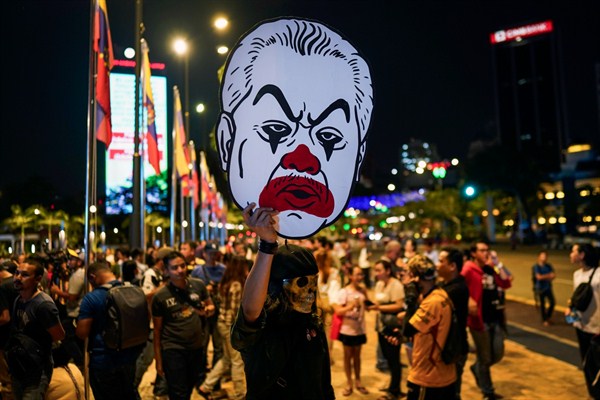Less than two years after Malaysia’s landmark May 2018 election that ousted its long-ruling coalition, tensions within the government exploded into the open in recent weeks, upending the country’s politics. Nonagenarian Prime Minister Mahathir Mohamad resigned late last month in an apparent attempt to ditch most of his allies from the Pakatan Harapan coalition, which he had led to an upset victory against the scandal-plagued Barisan Nasional bloc in 2018, and form a new, essentially ethnic Malay government. It would have included his old party, the United Malays National Organization or UMNO, which led the Barisan Nasional during its six-decade rule, and the Islamist Malaysian Islamic Party, or PAS.
But other members of Pakatan Harapan fought back, and Mahahtir spent a week horse-trading with his erstwhile allies. It was left to Malaysia’s king to try and clarify the muddle, with suggestions that he would reappoint Mahathir as interim prime minister in preparation for snap elections.
In the end, however, Mahathir’s gambit backfired. The king chose Muhyiddin Yassin, who cofounded Bersatu, the small party Mahathir aligned with as part of Pakatan Harapan, as the new prime minister, in a coalition with UMNO and the PAS. Mahathir objected, claiming that the majority of Parliament still supported him as prime minister. The choice of Muhyiddin also sparked the ire of many Malaysians who took to social media and to the street to register their opposition to the new “backdoor government.” They claim they had not voted for Muhyiddin—Bersatu was a junior partner in the Pakatan Harapan coalition—and condemned him for allying with UMNO, long known for corruption and an authoritarian brand of politics.

